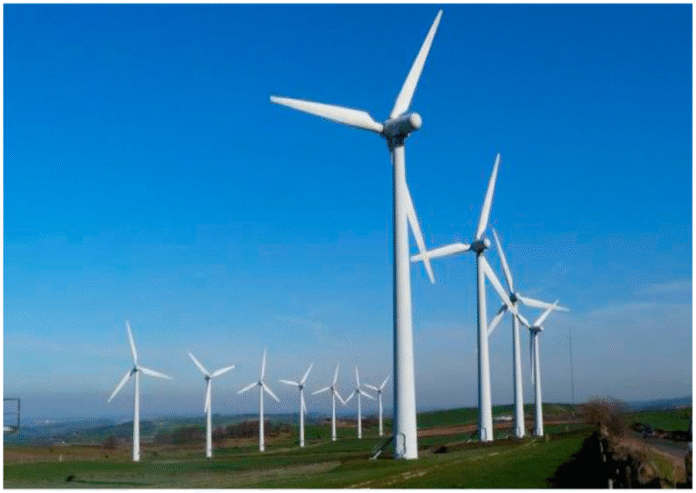Illustrative Image: Machine Learning in Renewable Energy: A Comparative Study of the USA and Sub-Saharan Africa
Image Source & Credit: MDPI
Ownership and Usage Policy
A recent study by Anya, A. A. (2025), titled “HARNESSING RENEWABLE ENERGY WITH MACHINE LEARNING: A COMPARATIVE STUDY OF RENEWABLE ENERGY APPROACHES IN THE USA AND SUB-SAHARAN AFRICA” published in the Journal of Advanced Research and Multidisciplinary Studies, reveals that machine learning (ML) has significantly improved renewable energy efficiency, demand forecasting, and grid stability in the United States.
“
Machine learning significantly enhances renewable energy efficiency and grid stability in the U.S., while Sub-Saharan Africa faces adoption barriers.– Anya, A. A. 2025
The study investigates the transformative role of machine learning (ML) in advancing renewable energy systems across two contrasting regions: the United States and Sub-Saharan Africa. The research emphasizes how ML technologies significantly enhance energy efficiency, enable accurate demand forecasting, and improve the stability of energy grids. In the United States, ML has already been widely adopted to optimize grid operations, manage energy consumption, and reduce waste—thanks to its robust infrastructure, financial investment, and access to vast datasets. Conversely, sub-Saharan Africa faces significant barriers to ML integration, including limited technological infrastructure, data scarcity, financial constraints, and a shortage of skilled personnel. By conducting a comparative analysis, the study highlights both the progress and the challenges in each region. While the U.S. showcases the potential of ML-driven renewable energy systems, sub-Saharan Africa presents an urgent case for intervention and support. To bridge this gap, the study proposes targeted policy recommendations: investing in education and training to build local expertise, developing data infrastructure, fostering technological growth, and encouraging regional and international collaboration. It further advocates for global partnerships, particularly the involvement of technologically advanced countries like the U.S., to facilitate knowledge transfer, joint research initiatives, and sustainable development.
How the Study was Conducted
The study adopted a comparative analytical approach grounded in an extensive literature review. Data were sourced from academic journals, government publications, industry reports, and documents by international energy organizations. This approach allowed the researchers to synthesize a wide range of insights concerning ML applications in renewable energy systems across both regions. A comparative framework was used to evaluate how the United States leverages ML technologies to optimize energy grids, forecast consumption, and manage energy waste. In contrast, the analysis of SSA focused on identifying barriers to ML adoption, such as technological limitations, restricted data access, financial constraints, and a shortage of skilled professionals. Key analytical techniques included literature synthesis to consolidate findings from previous research, and cross-sectional analysis to map differences in ML adoption. These differences were assessed in terms of infrastructure readiness, investment levels, and policy frameworks supporting renewable energy initiatives.
What the Author Found
The author found that machine learning (ML) has significantly improved renewable energy efficiency, demand forecasting, and grid stability in the United States. The country benefits from strong technological infrastructure, investment in research and development, and widespread ML adoption in renewable energy systems. In contrast, Sub-Saharan Africa (SSA), despite having immense renewable energy potential, faces substantial barriers such as inadequate infrastructure, limited access to data, and financial constraints. These factors hinder the widespread application of ML in renewable energy across the region. However, ML presents an opportunity to address these challenges by optimizing resource use, improving grid performance, and enhancing energy access.
Why is this important
This study is important because it highlights the transformative role that machine learning (ML) can play in optimizing renewable energy systems. With climate change and energy security being critical global challenges, the integration of ML in renewable energy can improve efficiency, enhance grid stability, and promote sustainable energy solutions.
For the United States, the findings reinforce how advanced AI technologies help streamline energy consumption forecasting, optimize grid operations, and reduce energy waste. This ensures the country maintains its leadership in renewable energy innovation.
For sub-Saharan Africa (SSA), the study sheds light on the region’s immense renewable energy potential and the barriers preventing ML adoption—such as inadequate infrastructure, limited data access, and financial constraints. By addressing these challenges, SSA can leverage ML to enhance energy access, optimize resource use, and improve overall energy efficiency.
Furthermore, the study emphasizes the need for international collaboration, where advanced economies like the U.S. can support SSA through technology transfer, research partnerships, and investment in ML-driven energy solutions. If properly implemented, these strategies could bridge the technological gap and create a more sustainable and equitable global energy landscape.
What the Author Recommended
- The author emphasizes establishing robust data collection and sharing mechanisms to support ML applications in renewable energy and developing programs to train professionals in ML and renewable energy technologies.
- The study advocates encouraging partnerships between SSA and technologically advanced nations like the USA to facilitate knowledge transfer.
- The study urges the government to implement policies that incentivize investments in ML-driven renewable energy projects.
- In addition, the USA can support SSA by providing access to advanced ML tools and software as well as expanding access to foreign direct investments and development aid to fund renewable energy initiatives.
In conclusion, the study by Anya (2025) underscores the transformative potential of machine learning in revolutionizing renewable energy systems, particularly by enhancing efficiency, forecasting, and grid stability. While the United States demonstrates the successful integration of ML due to its robust infrastructure and resources, Sub-Saharan Africa remains constrained by critical challenges. However, with strategic investments in education, data infrastructure, and international collaboration, the region holds immense potential to harness ML for sustainable energy development. Bridging this technological divide is not only vital for regional progress but also for achieving a more equitable and resilient global energy future.
















 The African Research (AR) Index is a comprehensive scholarly directory and database focused explicitly on journal publishers that publish and disseminate African research.
The African Research (AR) Index is a comprehensive scholarly directory and database focused explicitly on journal publishers that publish and disseminate African research.

